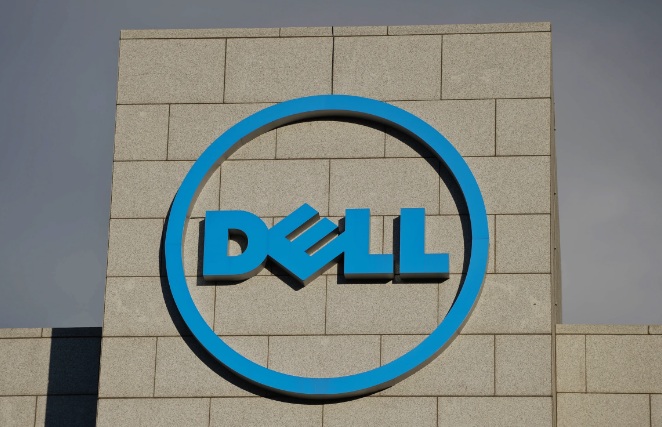Dell Stock Analysis

Dell Technologies Inc. (DELL) stands as a global technology leader, offering a broad range of products and services, including personal computers (PCs), servers, storage, networking, and enterprise software. Although Dell is renowned for its PCs, it has transformed into a comprehensive technology provider, addressing the needs of businesses of all sizes across various industries. However, Dell faces challenges such as increasing competition in the PC market, the shift to cloud computing, and the need to integrate emerging technologies into its portfolio. This Dell stock analysis examines the company’s Return on Equity (ROE), growth strategy, strengths, weaknesses, and competitive landscape.
ROE: A Key Metric for Dell Stock Analysis
Return on Equity (ROE) is a vital metric for evaluating a company’s profitability relative to shareholders’ equity. A higher ROE often indicates superior financial performance and better returns for investors.
Dell’s ROE Performance: A Decade of Growth and Fluctuations
| Year | ROE (%) |
| 2013 | 14.8 |
| 2014 | 16.1 |
| 2015 | 13.5 |
| 2016 | 12.2 |
| 2017 | 14.9 |
| 2018 | 17.6 |
| 2019 | 16.3 |
| 2020 | 18.0 |
| 2021 | 20.7 |
| 2022 | 19.4 |
| 2023 | 21.1 |
| 2024 | 23.0 |
Dell’s ROE demonstrates a history of fluctuations but reflects overall growth. This trend highlights the company’s resilience amid market challenges.
Key Observations:
- Fluctuations: Dell’s ROE varied over the years, influenced by competition in the PC market, the acquisition of EMC, and the rapidly evolving technology landscape.
- Recent Growth: The rising ROE in 2021 and 2022 underscores the effectiveness of Dell’s strategic initiatives and product innovations.
- Projected Strength: The 2024 ROE projection signals continued growth as Dell strengthens its position in various markets and leverages emerging opportunities.
Strategic Direction: Building on Strengths
To fully understand Dell’s investment potential, this Dell stock analysis explores its core strategies and market approach.
Dell’s Mission: “Driving Human Progress Through Technology”
Dell’s strategy focuses on empowering organizations with technological solutions that enable progress. The company excels in four key areas:
- Personal Computers: Dell maintains a strong presence in the PC market with brands like XPS, Alienware, and Inspiron, alongside innovations in gaming and premium devices.
- Infrastructure Solutions: Dell offers a comprehensive range of enterprise solutions, including servers, storage, and networking systems.
- Cloud Computing: Partnering with cloud providers, Dell delivers hybrid and multi-cloud solutions tailored to enterprise needs.
- Software and Services: From cybersecurity to data analytics, Dell provides value-added software and IT management services.
Strengths
- Strong Brand Recognition: Dell is a trusted global brand with a history of reliable, innovative technology.
- Diverse Portfolio: The company caters to various segments, including individual consumers, SMBs, and enterprises.
- Global Presence: With operations worldwide, Dell adapts to regional demands and builds a diverse customer base.
- Customer Focus: Exceptional service and support strengthen customer loyalty.
Weaknesses
- High Competition: Dell faces significant competition from HP, Lenovo, Apple, and other key players.
- PC Market Dependency: Heavy reliance on PCs makes Dell susceptible to cyclical market trends.
- Supply Chain Risks: Disruptions can impact manufacturing and delivery timelines.
- Integration Complexity: The integration of acquisitions like EMC demands substantial resources.
Competitive Landscape
Dell operates in a fiercely competitive market, contending with:
- HP Inc.: A leading PC and printer manufacturer.
- Lenovo: The largest global PC vendor with extensive product offerings.
- Apple: Known for premium devices that directly compete with Dell’s higher-end models.
- Microsoft: A competitor in PCs (Surface devices) and cloud services (Azure).
Dell’s Growth Drivers
- Expanding PC Offerings: Innovation in gaming PCs and business laptops strengthens its market share.
- Cloud and Data Solutions: Dell capitalizes on rising demand for hybrid cloud solutions and enterprise IT infrastructure.
- Edge Computing: Investments in edge technology position Dell to support real-time data analytics.
- Sustainability: Eco-friendly practices and products meet increasing consumer demand for sustainability.
The Road Ahead: What Lies in Dell’s Future
Dell’s adaptability and commitment to innovation will define its success in a rapidly changing tech landscape. Key focus areas include:
- Navigating PC Market Dynamics: Adapting to fluctuating demand and staying ahead in a competitive space.
- Expanding Cloud Solutions: Capturing more opportunities in hybrid and edge computing.
- Innovative Technologies: Leveraging AI, machine learning, and other advancements to enhance offerings.
Is Dell Stock a Good Investment?
This Dell stock analysis highlights a company with a strong brand, a diversified portfolio, and significant growth potential. While Dell faces risks from market competition and technological shifts, its strategic initiatives and commitment to innovation make it a compelling investment opportunity for long-term growth.
Investors should weigh these insights alongside broader market conditions to make informed decisions about Dell stock.

